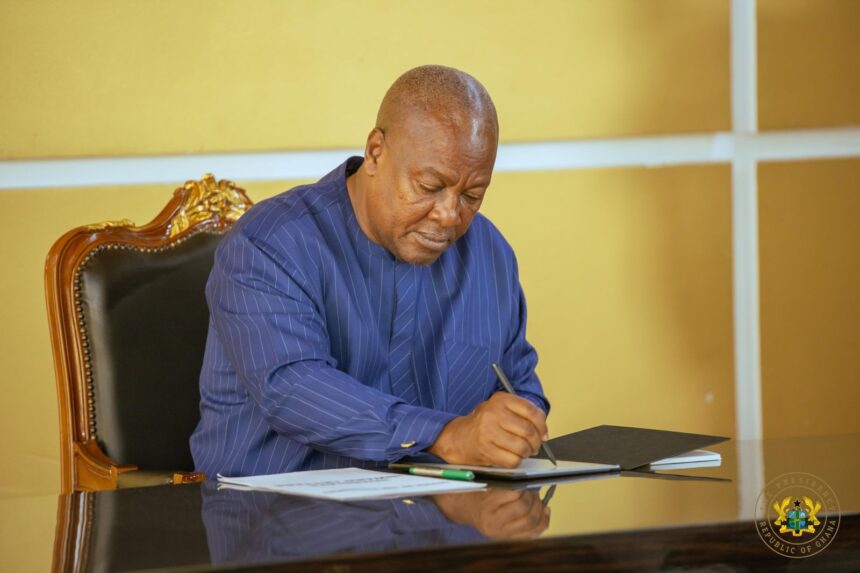In a curious twist of executive commentary, President John Mahama, now in his second presidential stint, has declared that his government intends to scrap illegal port charges and ensure that all fees at Ghana’s ports receive parliamentary approval. The problem is, this isn’t a fresh idea at all. In fact, it’s not even an idea in progress. It is already law. Not policy in the works, not a legislative proposal awaiting the Speaker’s gavel — it is active, binding law, passed under the administration of the very man Mahama succeeded.
Back in 2024, Parliament passed the Ghana Shippers’ Authority Act, Act 1122. It was a significant piece of legislation, born out of years of complaints from importers, exporters and freight forwarders who had been consistently shortchanged by shipping lines and service providers operating with wild pricing and opaque fees. The new law gave the Ghana Shippers’ Authority teeth — not just in form but in function. It granted the Authority explicit power to regulate non-tax port charges, approve or reject levies proposed by shipping lines, and, more critically, sanction and fine defaulters. This was a pivotal shift from its previous role as an advisory body with bark but no bite.
So when President Mahama stood before Ghanaians and suggested that Parliament needs to step in and legislate charges at the ports, it left many wondering: is the President unaware of Act 1122, or is he choosing to erase the legislative memory of his predecessor’s administration for political optics? Either option is deeply troubling.
It’s one thing for political leaders to reinterpret history to suit their agenda. It’s quite another when such reframing erodes institutional memory and accountability. Ghana Shippers’ Authority has already been empowered — legally and structurally — to act as the regulator of port fees. What it lacks is not law, but enforcement. Not legitimacy, but leadership.
More than a year since Act 1122 was passed, the Authority has yet to levy a single fine. Not one shipping line has been penalised. Despite persistent reports of unapproved charges and murky pricing models, the regulator has functioned more like a friendly observer than a watchdog. No names have been published, no investigations have been made public, and certainly, no serious deterrents have been issued. The law is alive, but the regulator is asleep.
And so the public is left in limbo, watching port users continue to bleed money through the very leaks Parliament tried to seal. Meanwhile, a sitting president recycles an already-enacted policy as a novel intervention, either oblivious to the legislative landscape or performing for applause.
This isn’t a crisis of legality — it is a collapse of institutional clarity. The Ghana Shippers’ Authority must answer for its silence. It must explain why, despite being handed the legal weaponry, it has refused to fire a single shot. If port charges remain chaotic and illegal, it is because the institution built to clean them up is shirking its responsibility.
President Mahama does not need to legislate. He needs to implement. He needs to demand performance from his appointees and fidelity to laws already on Ghana’s books. Parliamentary action is not required. Presidential oversight is. The script has already been written; the cast simply refuses to perform.

Mahama’s shipping lines outburst: why is the NDC pretending Act 1122 does not exist
Disclaimer: The content published on this website is for informational purposes only. The views, opinions, and positions expressed by individual authors or contributors are theirs alone and do not necessarily reflect those of [patriotnewsonline.com]. While every effort is made to ensure accuracy, [patriotnewsonline.com] does not assume any responsibility or liability for any errors, omissions, or outcomes resulting from the use of this information. Readers are advised to verify facts independently and seek professional advice where necessary.
Leave a Comment



